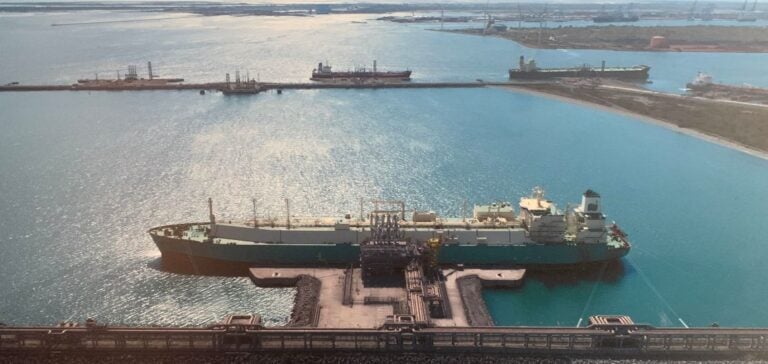The French Senate, through a cross-party commission of inquiry, is calling for an immediate halt to imports of liquefied natural gas (LNG) from Russia. This measure is part of a drive to reduce France’s energy dependence on Russia, accentuated by recent geopolitical tensions. The commission, chaired by Roger Karoutchi (Les Républicains) and reported by Yannick Jadot (Écologistes), stresses the need to diversify energy supplies to guarantee the country’s energy sovereignty. To this end, the Senate encouraged the revival of nuclear power in France.
The Challenges of Russian LNG Dependence
France, like much of Europe, has stepped up its imports of Russian LNG since the start of the conflict in Ukraine, seeking to compensate for the reduction in pipeline gas supplies. This situation has highlighted the continent’s energy vulnerability to geopolitical fluctuations. The Senate committee stresses the importance of ending this dependence by including Russian LNG among the energy products subject to European sanctions. According to the report, this initiative would make France a pioneer among European countries, setting an example by stopping imports of Russian LNG. Nevertheless, on a continental scale, Russian LNG exports to the Old Continent will have fallen by 10% by 2023.
Economic and political consequences
Stopping Russian LNG imports would have significant economic and political implications. On the one hand, this could lead to higher energy costs in the short term because of the need to find alternative sources. On the other hand, this measure would reinforce France’s position as a leader in the fight against energy dependency and climate change. The Senate committee believes that this decision would also encourage other European countries to adopt similar policies, thereby contributing to greater collective energy security.
Implementation Challenges
Implementing the halt to Russian LNG imports presents a number of challenges. Firstly, it is crucial to secure alternative supplies to avoid energy shortages. Secondly, substantial investment in non-Russian LNG reception and storage infrastructure will be required. Finally, coordination with other EU member states will be essential to ensure a harmonized and effective approach. The commission recommends working with LNG-producing countries, particularly those in the Middle East and North America, to diversify sources of supply.
Future prospects
Stopping Russian LNG imports is part of a broader strategy to strengthen France’s and Europe’s energy resilience. In the long term, this policy could stimulate investment in renewable energies and storage technologies, thereby reducing dependence on fossil fuels. In addition, it could encourage the development of strategic partnerships with LNG suppliers in politically stable regions.





















